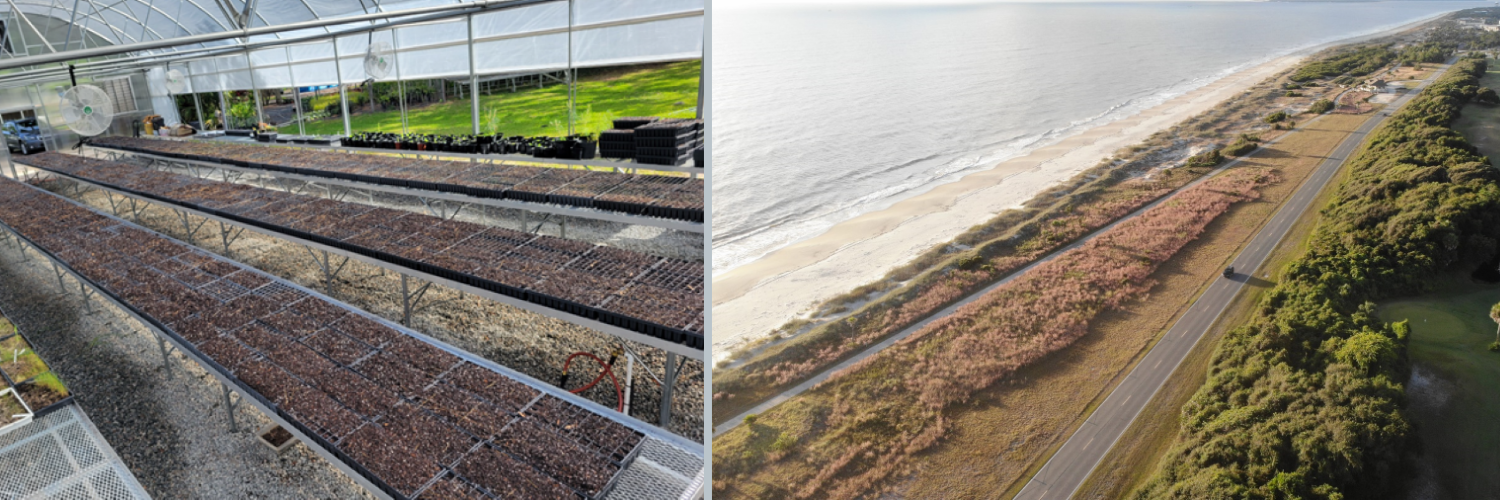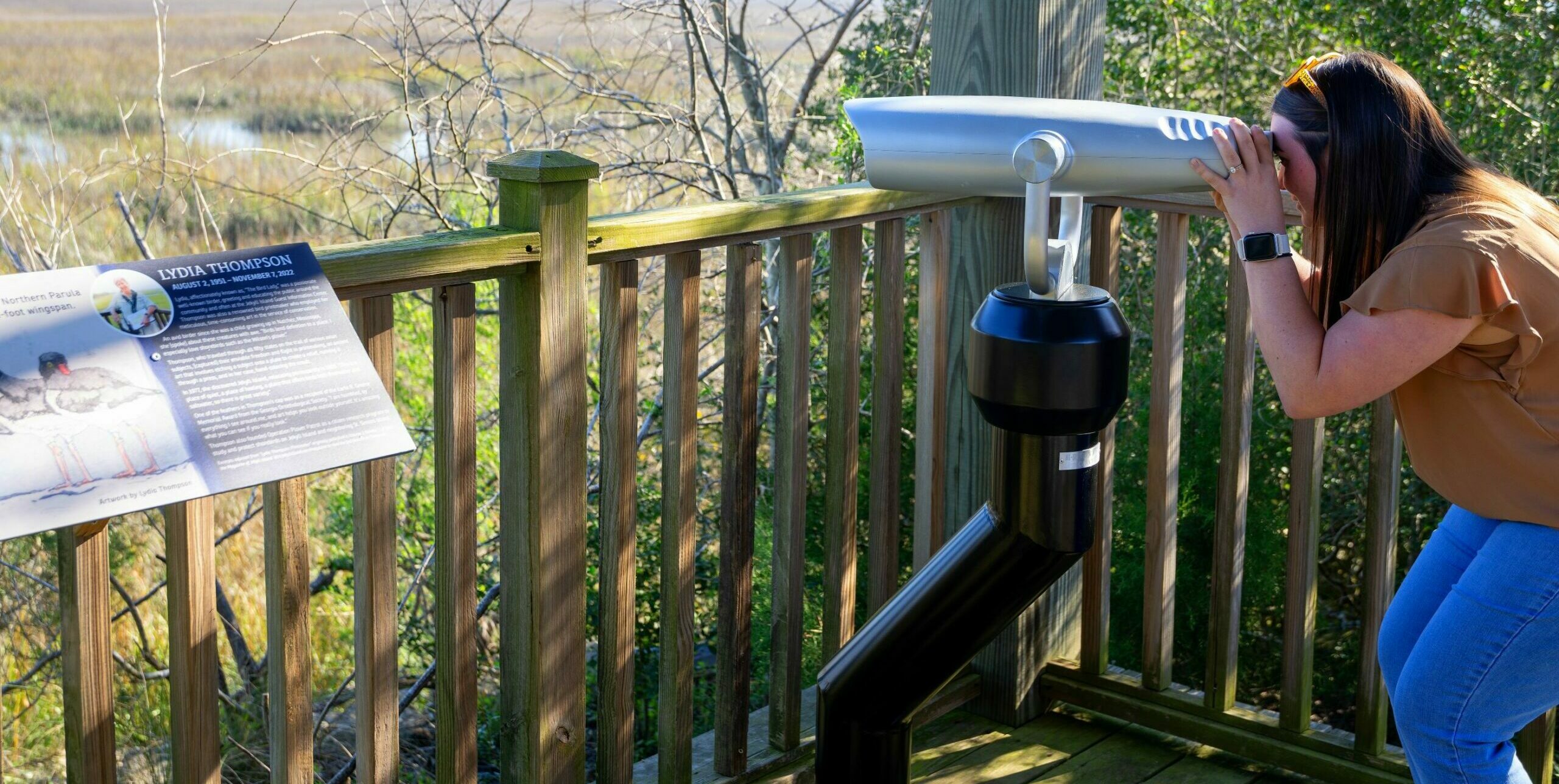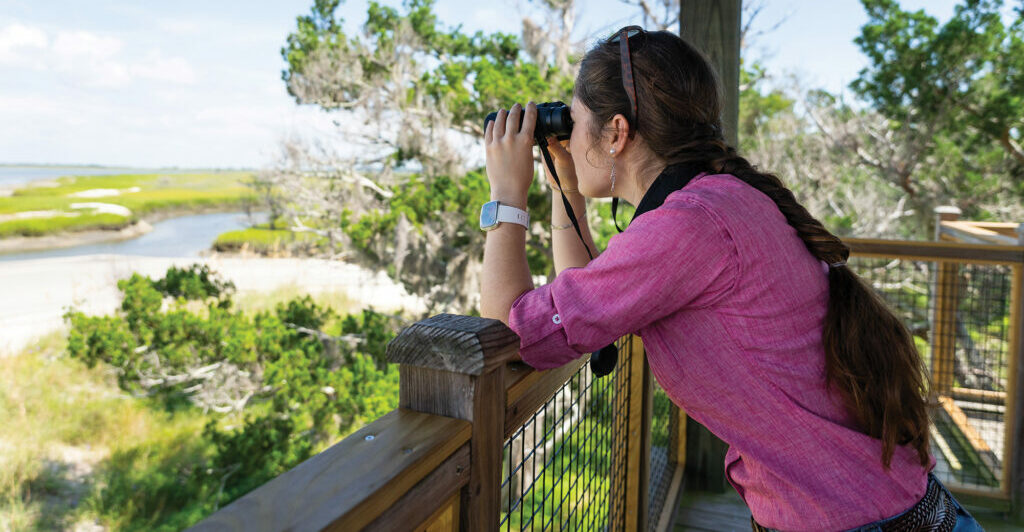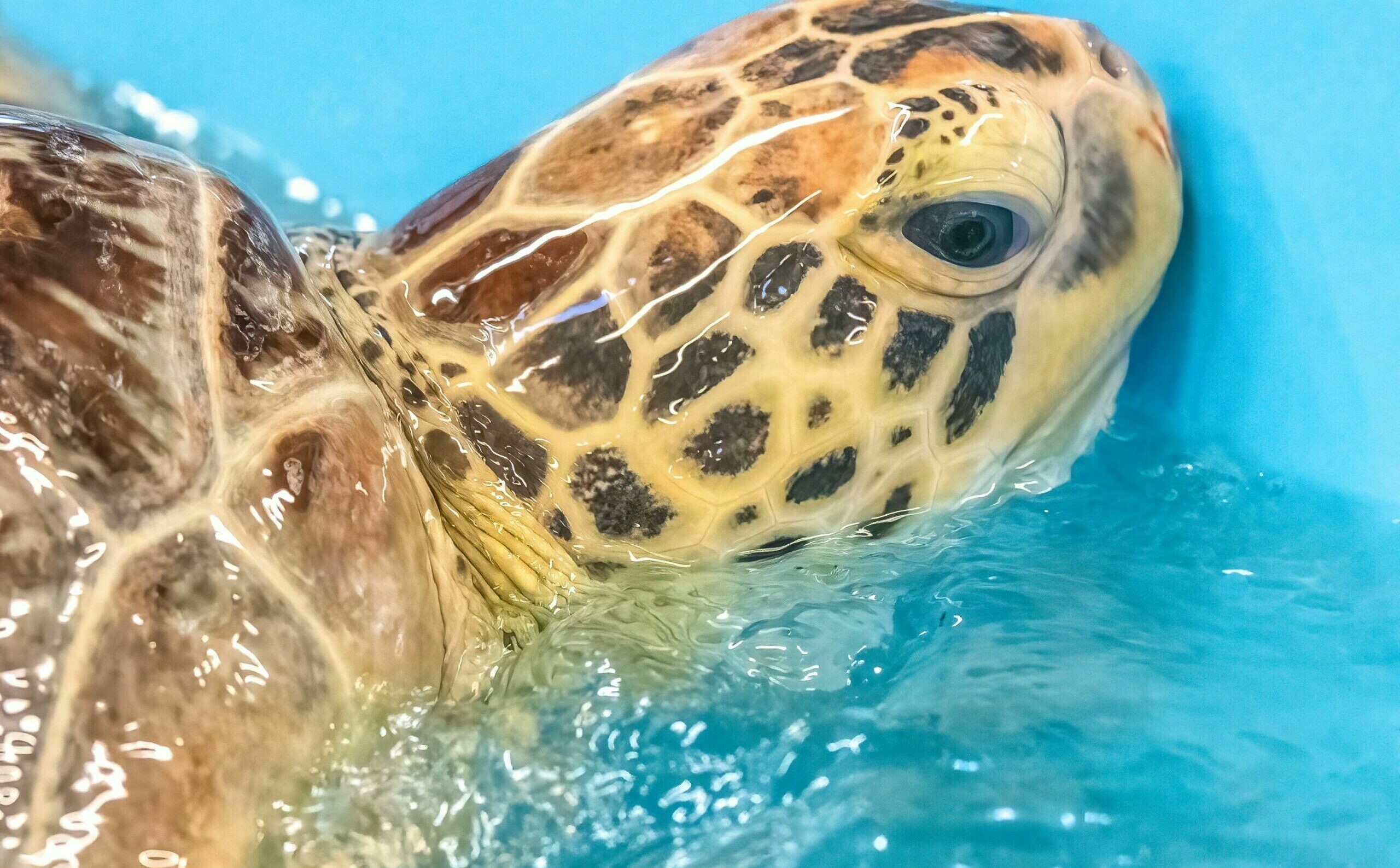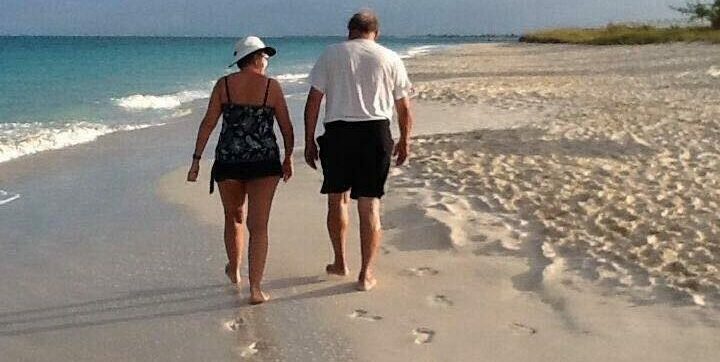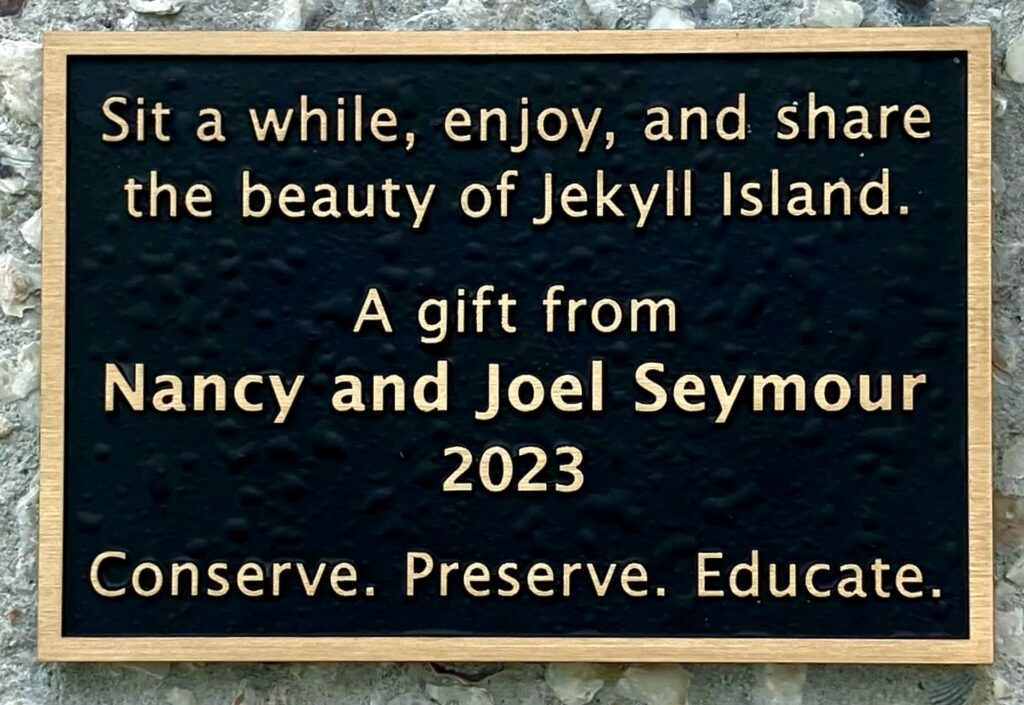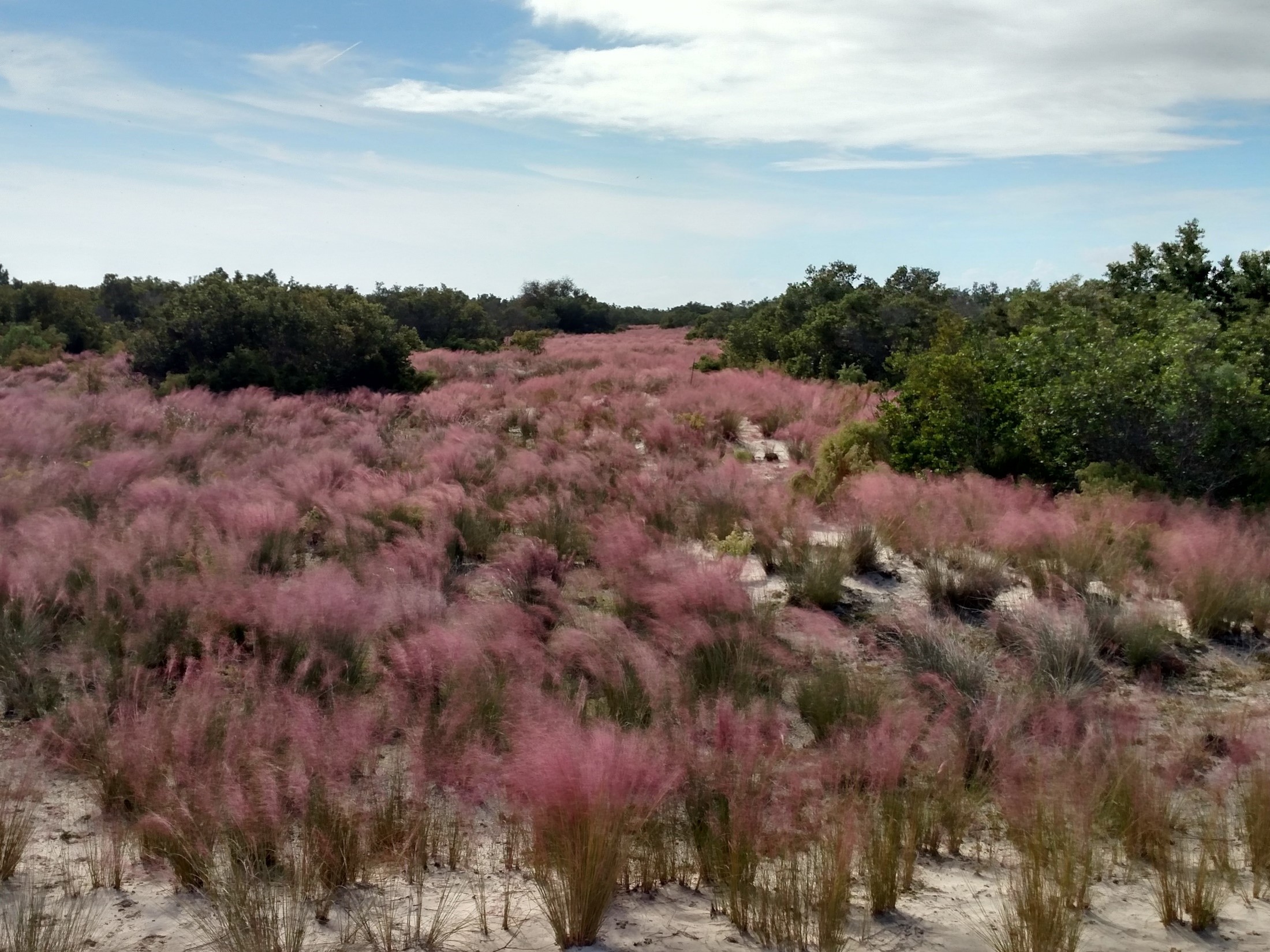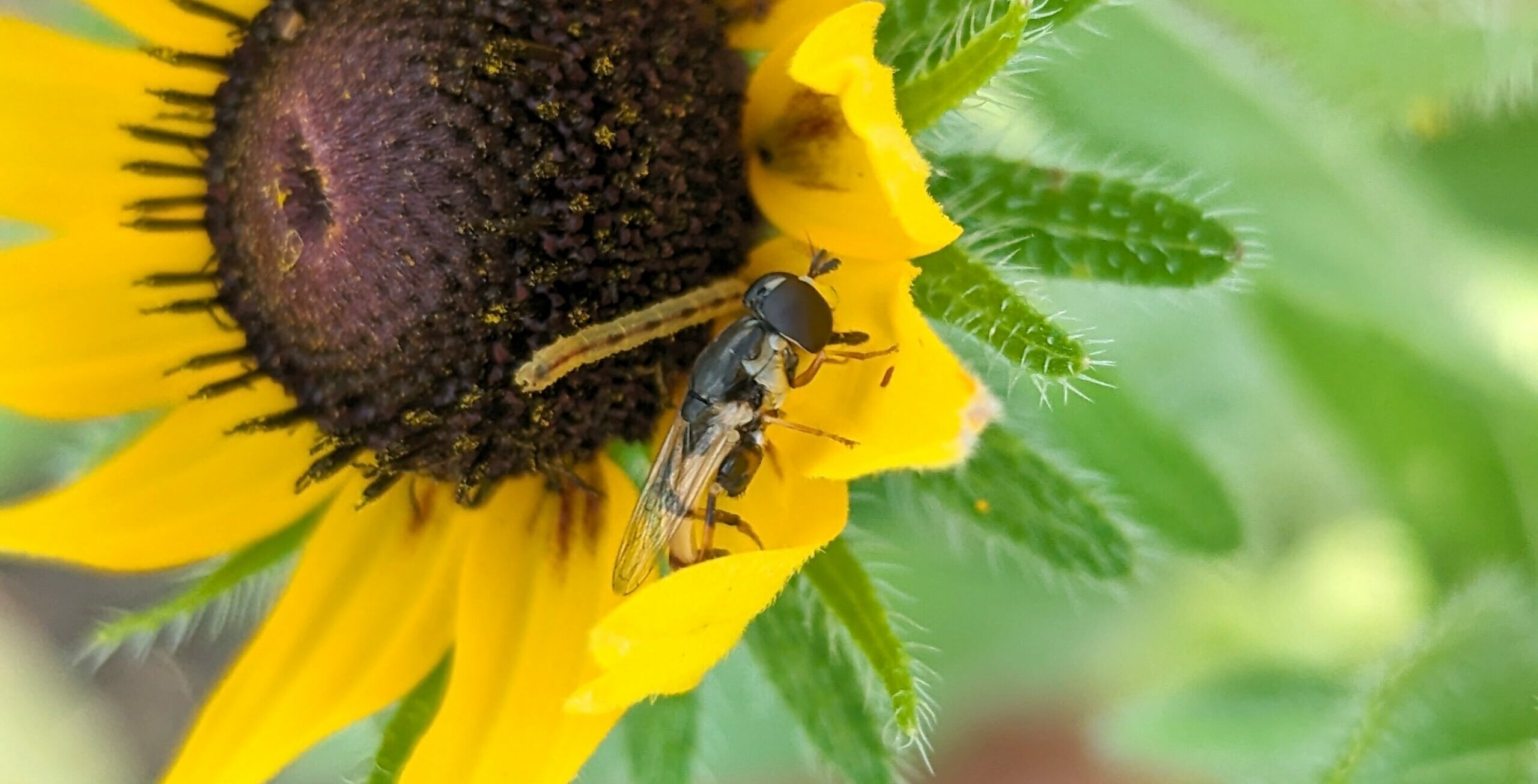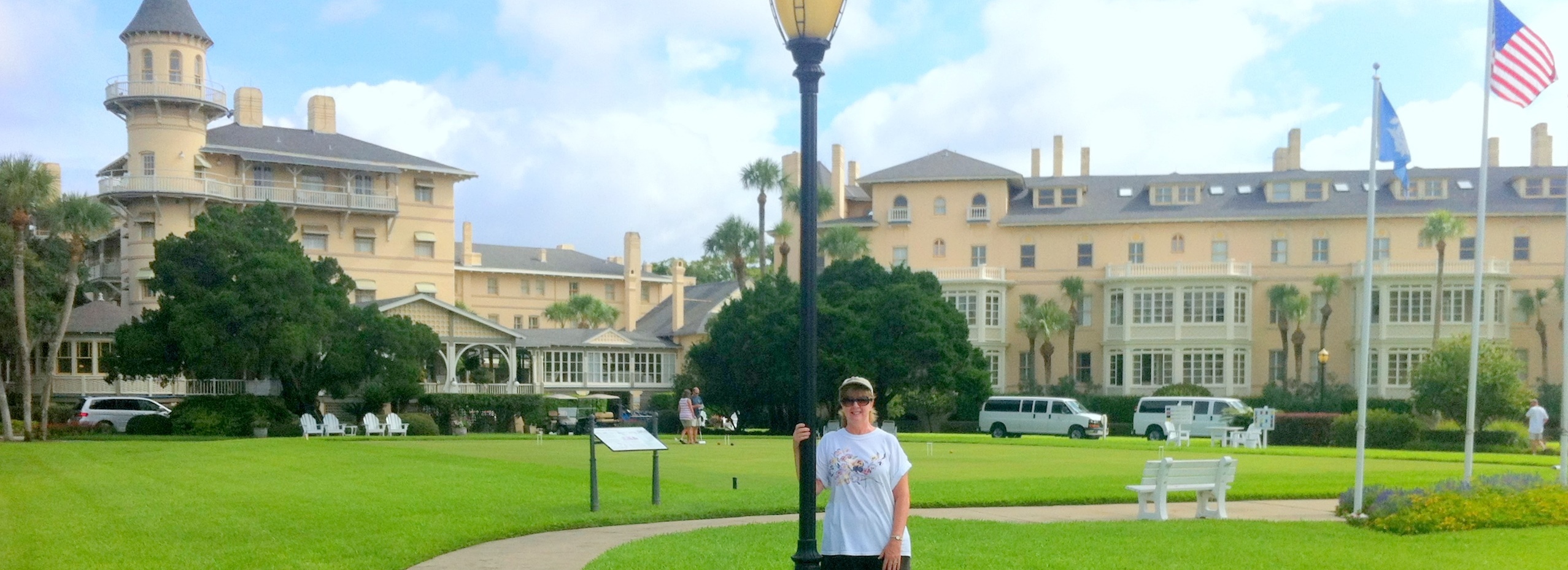The Habitat Restoration Campaign Improves & Expands
Joseph Colbert, JIA Wildlife Biologist & Yank Moore, JIA Director of Conservation
The Jekyll Island Conservation Department is pleased to announce several new developments that will significantly enhance restoration capabilities on the island. With support from grant funds provided by the Georgia Outdoor Stewardship Program, a new 2,000-square-foot greenhouse has been installed. This facility is dedicated exclusively to growing native plant plugs at scales previously unattainable. The addition of this greenhouse eliminates the need to purchase plugs from for-profit facilities, removing a major logistical barrier and increasing the efficiency and resilience of restoration efforts.
Over a year ago, an update was shared regarding one of the top restoration priorities: the Muhly Meadow Restoration Project. The “Acres & Acres of Muhly Grass” campaign was announced, in which it discussed how successful the previous muhly grass plantings have been, and the goal of planting over 200,000 individual muhly grass plugs over a 40-acre area. Last year, updates were also provided about how partners at Birds Georgia were wrapping up the Beachview Drive muhly meadow restoration project. That project is now complete, and there is excitement in announcing that 13-acres of Muhly Meadows were successfully planted by the end of November of 2024, exceeding the original goal. Now, with the new greenhouse, and staff capacity, Muhly Grass plugs have been in production for natural dune areas on the south end of the Island, where muhly meadows were once historically abundant, but are now limited to a few small congregations that are being inundated by marsh. Those naturally growing areas now cover less than an acre in total.
Continued support is essential to rescue and restore Jekyll Island’s naturally growing Muhly meadows. There remains a need for growing supplies, soil, greenhouse operational support, and on-the-ground planting assistance. Those interested in restoring rare and ecologically significant plant communities are encouraged to contribute through the Jekyll Island Foundation’s “Acres & Acres of Muhly Grass” campaign. Public support ensures that Jekyll Island remains a place where rare and imperiled coastal habitats can be enjoyed and appreciated for generations to come. The Conservation Department and the Jekyll Island Authority extend sincere gratitude to all donors and supporters who help make this work possible.
